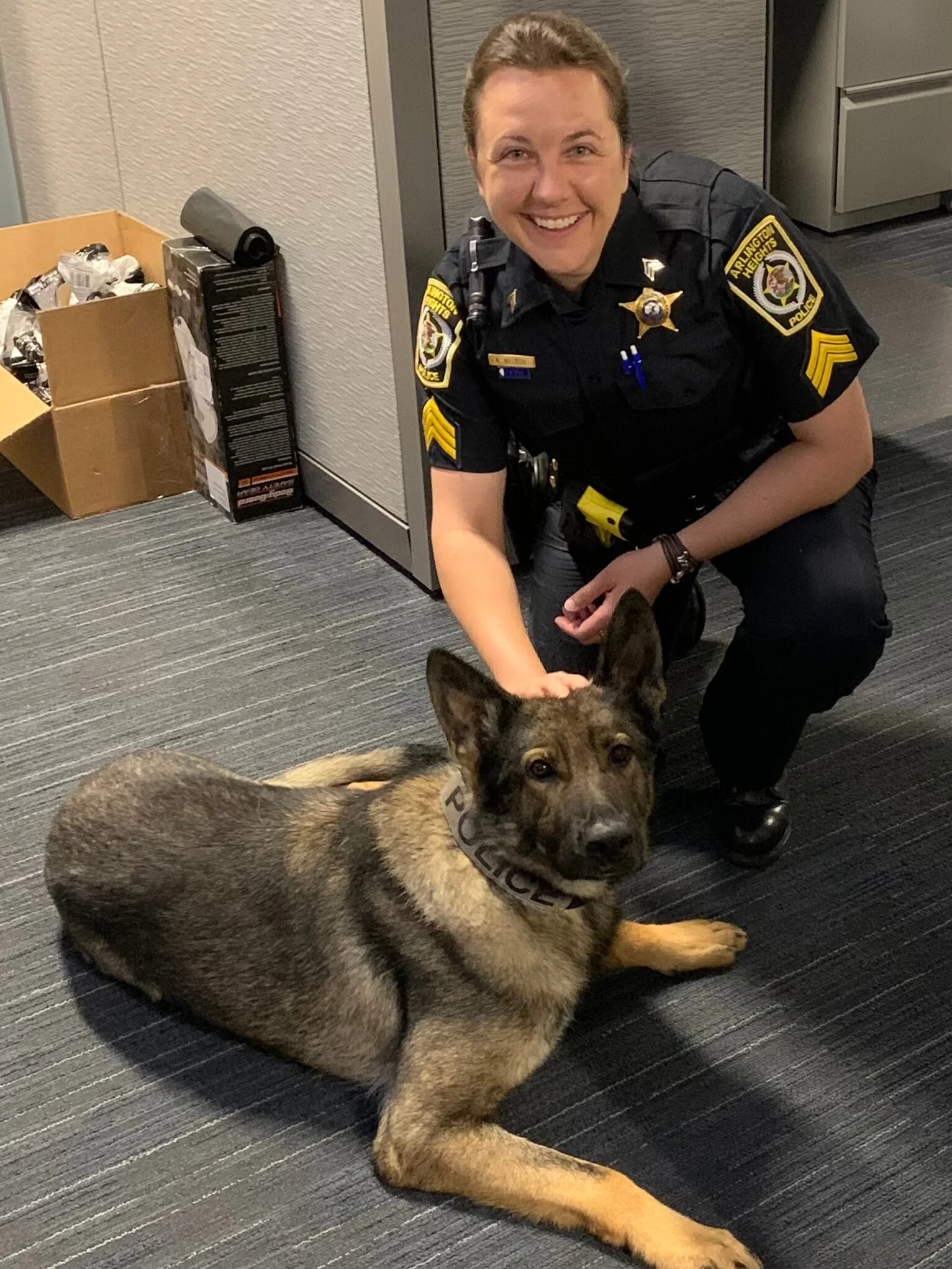Instructor Spotlight: Sgt. Alexandra Kitty Nelson
Fricke Cooper Achievement Award & SPSCO Class #469
 April 1, 2024 – Sgt. Alexandra Kitty Nelson is a graduate of SPSC Class #469 and a January 2024 recipient of NUCPS Traffic Crash Investigation & Reconstruction's Fricke Cooper Achievement Award. She is one of three women to have received this award to date, and one of two NUCPS students to have both attended SPSC and earned the FCA.
April 1, 2024 – Sgt. Alexandra Kitty Nelson is a graduate of SPSC Class #469 and a January 2024 recipient of NUCPS Traffic Crash Investigation & Reconstruction's Fricke Cooper Achievement Award. She is one of three women to have received this award to date, and one of two NUCPS students to have both attended SPSC and earned the FCA.
As a student and an instructor, Sgt. Alexandra Kitty Nelson is dedicated to lifelong learning. During her more than 26-year law enforcement career, Kitty Nelson has accumulated nearly 1000 hours of NUCPS classroom time, successfully completing Traffic Crash Investigation & Reconstruction courses, Supervision of Police Personnel, and School of Police Staff & Command. She obtained her B.S. in Applied Mathematics from the Illinois Institute of Technology, earned a M.A. in Psychology from the American Military University, and successfully complete a post-graduate forensic psychology course from The Chicago School of Professional Psychology. Rounding out her list of achievements is an ACTAR accreditation.
Now, Kitty Nelson invests time on the other side of the chalkboard as an instructor. As a patrol supervisor and wellness task force liaison at the Arlington Heights (IL) Police Department, Kitty Nelson is busy, but she still finds time to teach multiple courses and programs, including NUCPS’ Vehicle Dynamics class. “I have the good fortune of helping develop future crash professionals which has broadened my perspective as a supervisor, coach, and mentor,” says Kitty Nelson.
She also teaches through the Illinois Law Enforcement Training & Standards Board (ILETSB). Giving back to the profession through teaching is what she considers one of her career highlights:
Before she was a rock star instructor, Kitty Nelson tested the idea of a policing career as an auxiliary officer. Later, as a new officer, she discovered that the variety of skills she was called upon to use from shift to shift kept her excited about the job. "Despite so many calls being similar, an officer always has to be aware of nuances that change the nature of their response,” she commented. For Kitty Nelson, the crash investigation and reconstruction field developed as “a natural offshoot" of her math major. "This was an avenue within police work that readily combined my academic work with my desire to see physics in practical application,” she recalls. NUCPS’ crash courses formed the basis for her work in the field.
Looking back, Kitty Nelson believes that her experience as a crash reconstructionist offered “early practice in the leadership principles espoused in SPSC,” where she thrived in the ten weeks of networking and peer learning. “Despite my introvert tendencies, the networking in SPSC is the most valuable, enjoyable, and long-lasting part of the program. Four years later, my class still communicates fairly regularly to seek advice and opinions from each other. I also love to see how many classmates have promoted and the great things they continue to do,” she says. Kitty Nelson feels that two leadership lessons she values most from her SPSC experience are “to be the change you want to see” and “seek to understand rather than to agree.”
While law enforcement recruiting issues headline much of the industry press, Kitty Nelson believes that the “concerns that should be dominating public safety discourse are those addressing the treatment of employees as valuable humans with concerns separate from their occupations. We need to appreciate everyone’s contributions, from the SWAT operator to the person who keeps our bathrooms sparkling clean. We need our people to know they are valued and they matter. Agency culture needs to reflect these attitudes which will then transcend the walls of any agency to touch the community its people serve.”
Cultural shifts tie into her perspective on future recruiting solutions. “I think that successful recruitment efforts across the board will focus on building internal cultures that value their employees without question. When employees realize such a norm and are satisfied with their work environments, they become the most important and effective avenues for recruitment anywhere,” she explains. Women only make up 12% of sworn officers, while they account for 56.8% of the U.S. workforce. Kitty Nelson believes one method for attracting and retaining more female officers is by to provide "support in areas that might otherwise make them choose between their job and their family." She offers, as an example, "programs that assist with childcare at odd hours."
Throughout her career, she has valued her relationships with mentors and colleagues, those "who listen to understand and help me gain perspective.” When asked what the one piece of advice she would give brand new police officers, Kitty Nelson responded, “Be kind to yourselves…be kind to each other. You are part of the communities you serve.”


